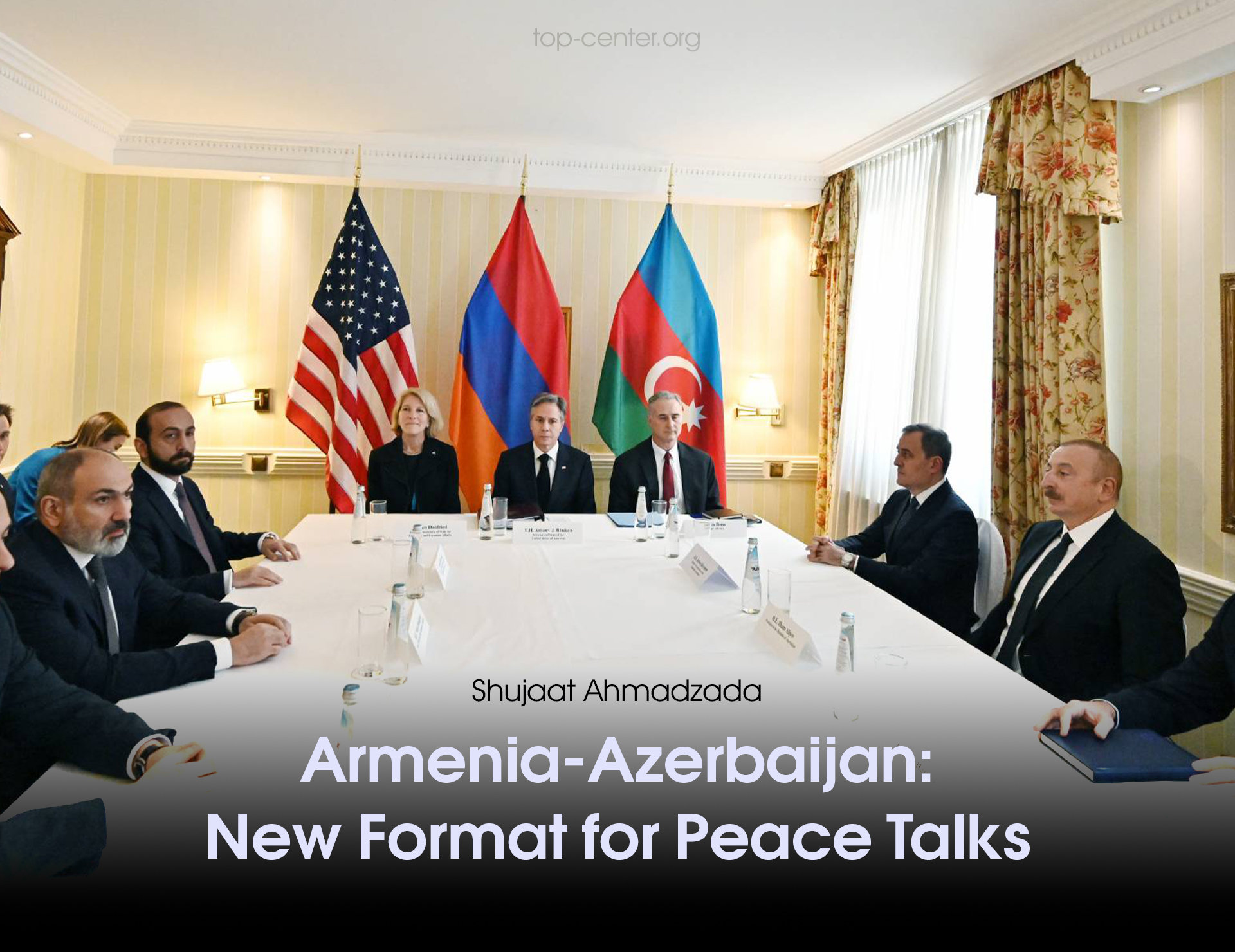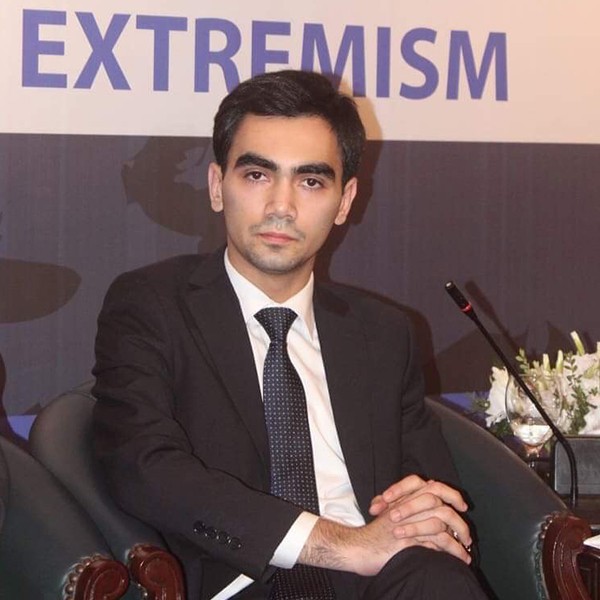Armenia-Azerbaijan: New Format for Peace Talks

The most recent statements regarding the Armenia-Azerbaijan peace talks show that the bifurcation of the format of the negotiations into the inter-state (between Baku and Yerevan) and intra-state (between Baku and Karabakh Armenians) tracks has almost been fixed. The two-track approach was initially put forward by the EU diplomats and later backed by the U.S. Armenia and Azerbaijan eventually agreed on this approach during the negotiations in Washington, D.C. in September 2022.
At the moment, the Armenia-Azerbaijan peace talks cover five packages: 1) the future of diplomatic ties, 2) the future of borders, 3) the future of transport and communication lines, 4) humanitarian issues, and 5) the fate of Karabakh Armenians. The primary goal of the two-track approach is to get Baku and Yerevan to sign a peace accord as soon as possible by taking the most challenging package - the future of the Armenians in Karabakh - off the inter-state track.
The peace accord signifies for Baku the consolidation of the military victory obtained during the Second Karabakh War, i.e., the removal of any chance of Karabakh possessing any status outside of Azerbaijan's control. For Yerevan, the "no peace, no war" alternative, where it is regularly forced to make more concessions, seems more painful than the signing of a peace accord, which would bring greater political support from the Western countries.
On the other hand, the deal between Armenia and Azerbaijan is seen by many Western countries as a crucial first step towards reducing Russia's influence in the South Caucasus. The intended outcomes of this political thinking are the withdrawal of Russian peacekeeping forces from Karabakh in the near future, a significant reduction in Armenia's reliance on Russia in strategically vital areas (energy, trade, etc.) in the medium term, and in the long term, the end of Russia's military presence in Armenia. The containment of Russia in the post-Soviet space gained more traction in Western nations, particularly after the Russian invasion of Ukraine in 2022, yet it would be misleading to claim that there is unanimity in the West on this matter.
Moreover, a massive rhetoric shift on the Zangezur corridor – which has long acted as the main obstacle in front of the inter-state agreement – is being recorded. Azerbaijan declared that it would accept to see a road with Armenian checkpoints rather than an extra-territorial route across southernmost Armenia. Yet, Baku argues for the same logic to be applied in the Lachin corridor.
While many may find this surprising, this has been long predicted by many who have knowledge of Azerbaijan's negotiating strategies. Azerbaijan has intentionally set the bar too high for the Zangezur corridor so that it could later backtrack or switch between several options to attain the best possible outcome. The over-exaggeration of this corridor has been done solely to elevate it to the same prominence in the negotiations as the future of Karabakh, creating a space for the first (the corridor) to be compromised for the sake of the getting the second (Karabakh’s status).
There have been some significant developments in the intra-state track as well. The most noteworthy one was Ruben Vardanyan's dismissal as the "State Minister" of the secessionist enclave in Karabakh. In his departure speech, he stated that "external pressure" was more likely to blame and claimed to differ with the current "President" Arayik Harutyunyan on a number of issues. As controversial as it may sound, Vardanyan's firing provides us with clues about not only the power dynamics at play, but also the internal split regarding the future of the enclave. We may contend that the group in favor of dialogue [with Azerbaijan] still holds the advantage over the hardliners.
Moreover, Baku is presently negotiating the specifics of how the intra-state track would operate in practice with Brussels and Washington. Azerbaijan is interested in giving more of a consultative role to international stakeholders, while they work to have a fixed position, preferably having a representation on the ground.
It is difficult to determine what role Russia plays in the bigger picture at a time when the Armenia-Azerbaijan peace format is being fundamentally changed. Despite having a positive opinion of the inter-state peace agreement, Russia has been an ardent backer of Nagorno-Karabakh maintaining its subjectivity - or as Vladimir Putin calls "specificness" - over the previous two years. Nonetheless, Moscow's long-standing opposition to the two-track process appeared to have failed after the Munich meetings. In a broader sense, the Kremlin is less capable to counter the political processes that are going against its interests throughout the post-Soviet region, which is yet another indication of the power vacuum that has emerged directly as a result of the significant tactical failures that Russia experienced and continues to experience in its war of invasion of Ukraine.







